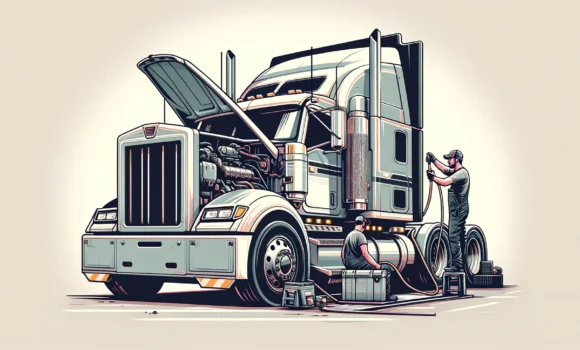Catastrophic Injury and Truck Accident Statistics

Catastrophic Injury Statistics and Truck Accidents
It is expected that by 2030, crashes will become the fifth leading cause of death in the US. Trucking is not an easy job, and just as with any machine, there is room for human error. Truck-related crashes are becoming increasingly common, as shown by research. This may concern the general public because of how dangerous and deadly these accidents generally are, causing severe and deadly catastrophic injuries.
Crash Classifications in Missouri
In the state of Missouri, these crash classifications describe accidents on the road.
The most common types of accidents include:
- Speed involved – Any crash where one or more drivers were exceeding the speed limit or driving too fast for road conditions.
- Alcohol involved – A collision where one or more drivers/pedestrians were drinking, and in the opinion of the responding police officer, the alcohol contributed to the cause of the crash.
- Young driver involved – Any crash where an involved driver was under the age of 21.
- Mature driver involved – A crash where an involved driver was over the age of 55.
- Commercial vehicle involved – Commercial motor vehicles include trucks having a gross vehicle weight of 10,001 pounds, cargo vans, limousines with a 9 to 15 occupant. capacity, buses with a capacity of 16+ people, and vehicles that display hazardous material placards.
- Motorcycle involved – A crash where one or more motorcycles were directly involved in the crash. In the state of Missouri, ATVs are not considered motorcycles.
For a full list of crash types and characteristics, you can visit the Missouri State Highway Patrol for more information.
General Truck Crash Statistics
Truck accidents happen all over the US, but they are becoming increasingly common. According to the Federal Motor Carrier Safety Administration (FMCSA), from 2016 to 2017, there was a 9% increase in the number of accidents related to trucking.
Other significant statistics to note are:
- In 2017, over 4,000 people died as a result of a truck-related accident and accounted for 11% of all roadside fatalities in the US. Of these deaths, 68% were attributed to drivers and passengers in standard cars.
- Around 97% of passenger car occupants die following a severe truck accident.
What Causes Truck Accidents?
The most significant cause of truck crashes is critical driver error. Typically, these errors may include failure to adjust speed, road fatigue, illegal maneuvers, distractions, and even OTC (over-the-counter) drug use.
While driver error is the number one cause for truck accidents, mechanical failures, specifically brake failure and tire blowouts, account for many accidents. Because of this, drivers should be sure to inspect their brake systems and tires regularly to ensure they are safe to travel long distances.
Approximately one-third of truck accidents are related to environmental factors. Fog reduces a driver’s ability to see, and rain and snow can both reduce traction.
Trucks also require more distance to come to a complete stop versus a standard passenger car. Increased speed will also cause a truck to need more time to stop. On average, a tractor going 40 MPH will travel 45 feet further than a passenger car at the same speed before coming to a complete stop.
Alcohol-impaired driving only accounts for 4% of truck-related crashes. This statistic goes against the stereotype that truckers consume alcohol while they are on the road or stop for a break.
Where and When Are Truck Accidents Happening?
According to Carsurance, 68% of trucking accidents occur in rural areas. This is because urban areas tend to have a more prominent police presence and are more crowded, so there is greater attention to traffic conditions. Rural areas are wide open, leading to a false sense of safety. As a result, vehicle operators may become more distracted and relaxed with their driving.
Another factor in truck accidents is the time of day. Most truck-related accidents occur during the day rather than at night. This is because roadways are more crowded during the day and on weekends, making for more obstacles for truck drivers. In Missouri, 71.4% of all fatal accidents occurred during the daytime in 2015.
Truck Accidents Pose a Higher Risk of Fatalities
Although truck accidents are not as frequent as passenger car-related accidents, they are still a concern for the general public. This is because they can be more costly and more destructive than a standard accident. The weight of a semi-truck can be 20 to 30 times heavier than a passenger car, which can lead to severe, life-altering, or deadly injuries. Some of the most common types of catastrophic injuries from truck accidents include:
- Traumatic Brain Injuries (TBIs)
- Spinal cord injuries
- Neck and back injuries
- Burns
- Amputation/disfigurement
- Internal injuries
- Bone fractures
The key to preventing these accidents is more rest and better education for truck drivers as well as all motorists participate in defensive driving habits.
Read more related truck accident topics here: The Survival Rate of Head-On Truck Collisions
How to Handle the Aftermath of a Truck Accident
Being involved in a truck accident is an overwhelming experience and can pose life-threatening injuries in many cases. Knowing where to turn when going through a difficult time can make all the difference when you need help.
Serious injuries need strong attorneys. When it comes to protecting your rights, we are here for you. Our attorneys are ready to fight for your rights, keep them protected and ensure your best interests remain a priority. If you have suffered severe injuries due to a motor carrier driver’s negligence, we are here to be your advocate when you need us. We’ll stop at nothing to ensure you receive the most successful outcome possible.
Contact today at (417) 887-4300. For challenging legal matters, we are here for you every step of the way.
Tell Us About Your Case
Contact us today at (417) 887-4300 or online to arrange your free case evaluation. Our Experienced Trial Attorneys will walk you through your legal options.


